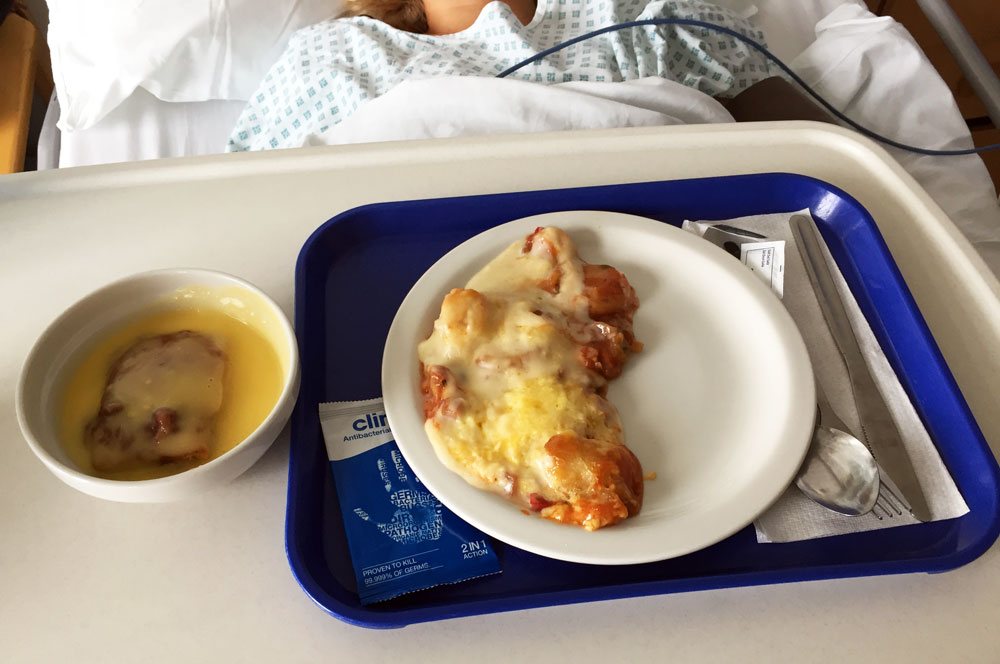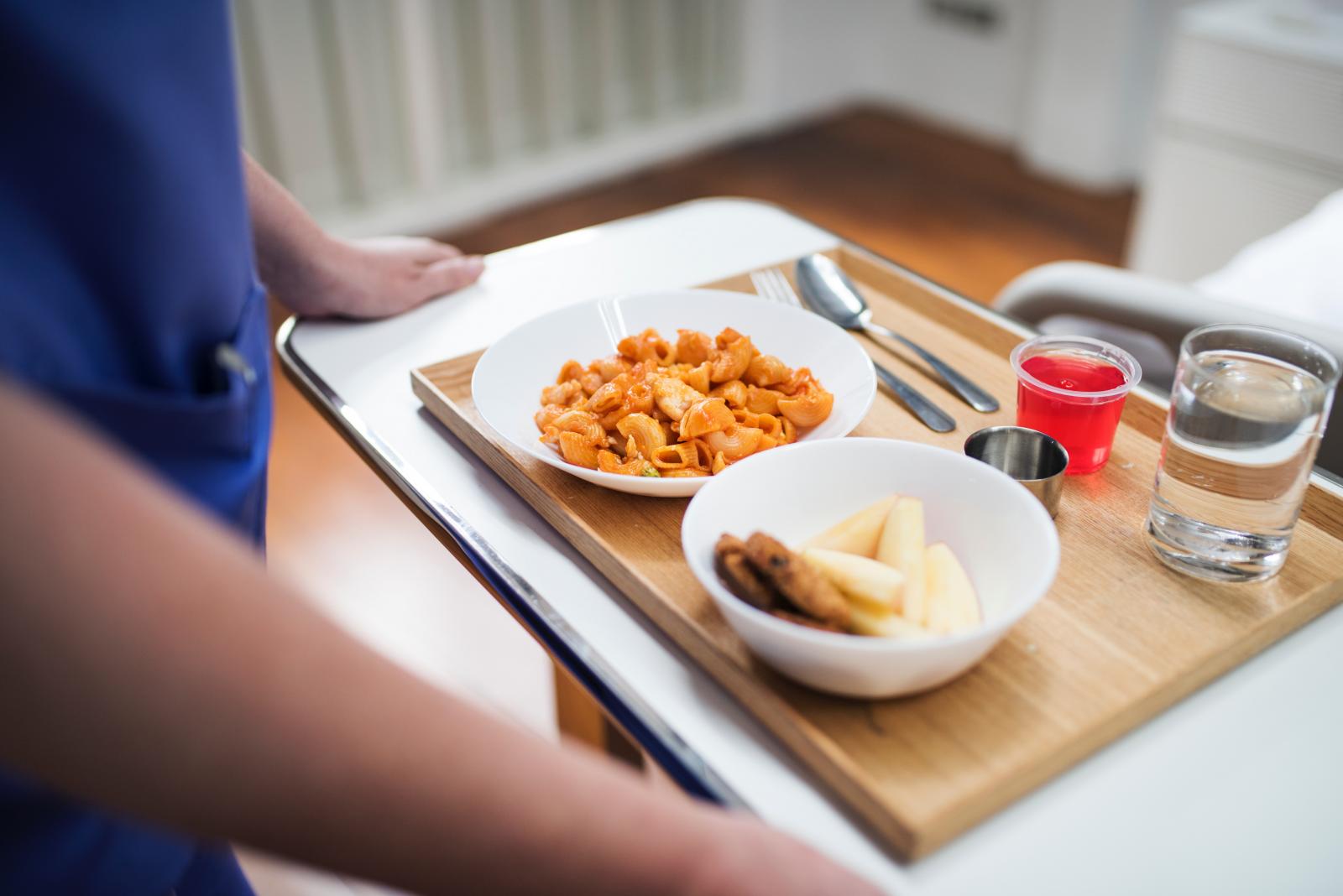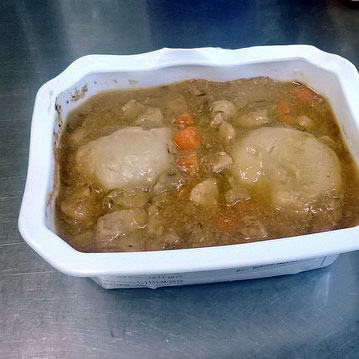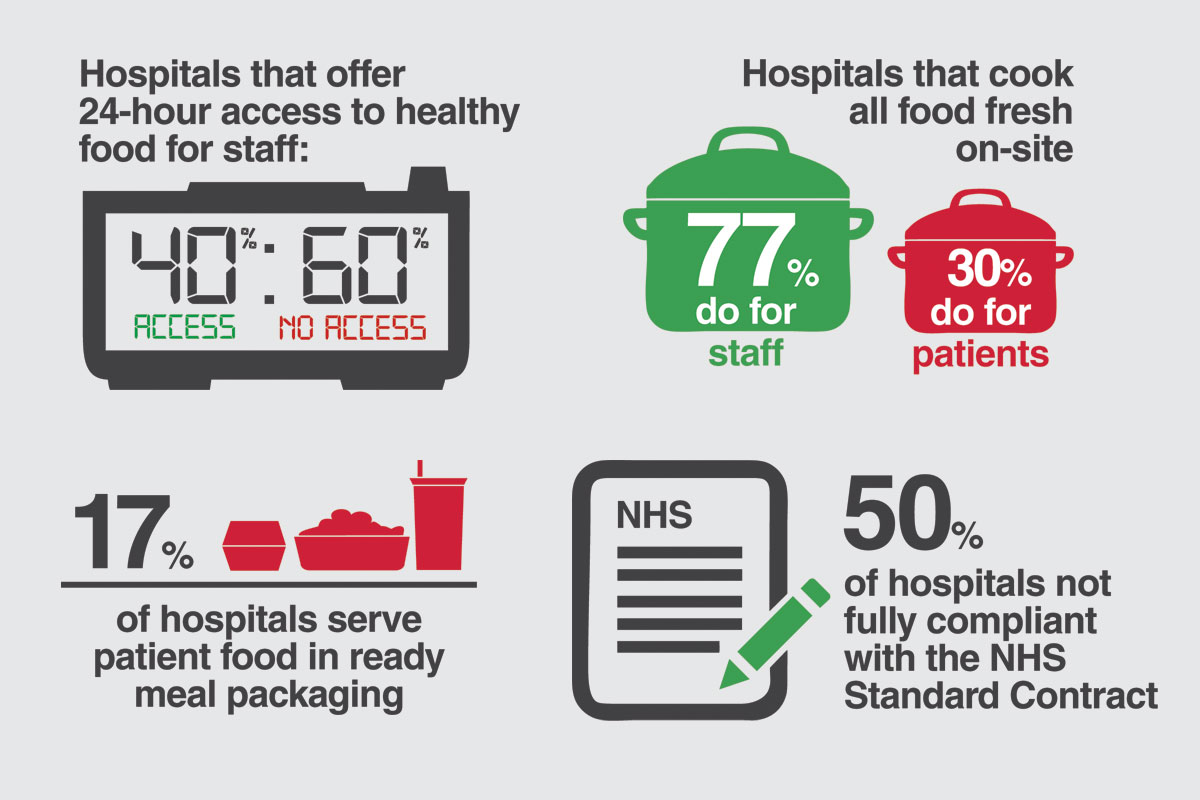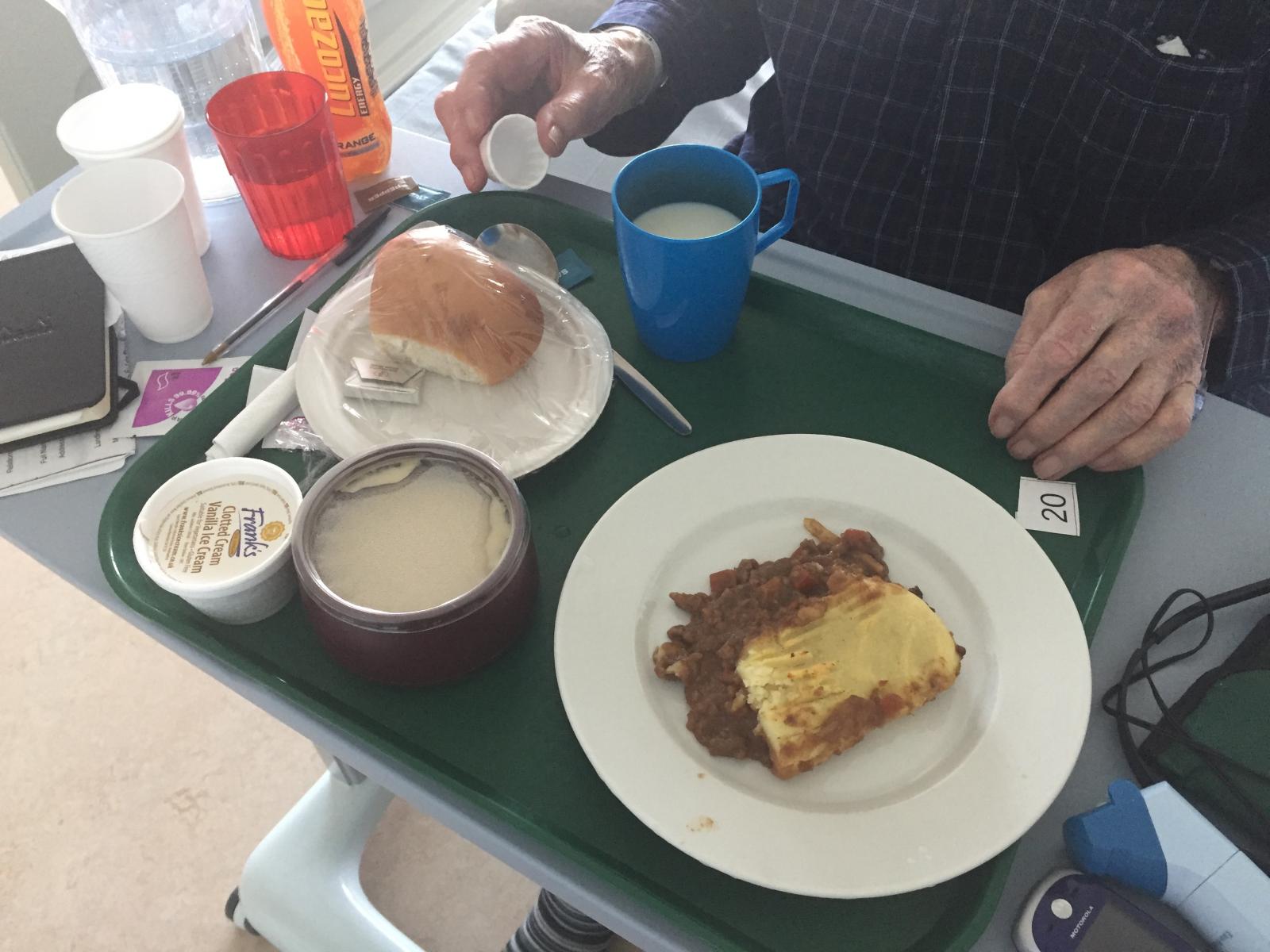Try not to choke - but health bosses say we love hospital food
- Michael Seres said food 'taste, service and organisation was diabolical'
- He was one of a team of 6 assessing Oxford University Hospitals NHS Trust
- Results were used for a Patient-Led Assessment of the Care Environment
- Flabbergasted to see trust had been awarded 78.06 per cent for its food
So when he was asked if he would like to be an official food inspector for Oxford University Hospitals NHS Trust, where he has been treated many times, he jumped at the chance.
'I thought this was finally my opportunity to make changes happen and to help make the food better for patients,' says Michael, who lives in Radlett, Hertfordshire.
Yet the experience has left him even more despairing.
Michael was one of a team of six - at least half were members of the public, the rest trust staff - assessing the service on a number of criteria, including whether patients had a suitable space to eat their meal; whether the food was served at the right temperature; what it tasted like; and what the patients thought of it.
The results were to be used for a Patient-Led Assessment of the Care Environment, or PLACE. These were introduced by the NHS in 2013 to help rank hospitals in England - the results are put on the NHS Choices website, so that patients can make informed decisions about where to be treated.
Each trust has a team that collates the assessment for the trust - at least half of the team must be members of the general public, and the remainder can be hospital staff. But can these assessments be trusted?
The food Michael witnessed being served to patients was - in his words - 'diabolical in terms of taste, service and organisation'.
'There was a ghastly mashed potato that was lumpy and inedible,' he says. 'And a vegetable soup that I can still remember very clearly. It was like dishwater - it tasted dire, with no flavour whatsoever.'
After his inspection in 2013, Michael filled in his questionnaire with resoundingly critical views on what he'd seen.
Yet when the PLACE assessment was published, Michael found out that the trust had been awarded 78.06 per cent for its food and how it was served.
'I was flabbergasted,' he says. 'Judging by what I saw and experienced of the food on those inspections, they shouldn't have got more than about 5 per cent.'
But it wasn't just the food that bothered Michael on his tour of the wards. Many of the meals were served by two people, working down a ward of 30 beds. 'By the time the food got to the last patient, it would be stone-cold and inedible,' he says.
'There would be other instances where the food would be put next to the patient, where they couldn't quite reach it. But because the nurse was so busy, the meal would just go to waste. We saw very high levels of food left on plates.'
Judging by what I saw and experienced of the food on those inspections, they shouldn't have got more than about 5 per cent.
His concerns about the rating tally with the results of a recent survey of 850 patients at the very same trust. This was conducted by the Care Quality Commission (CQC), the independent regulator of health and social care services in England.
The results revealed a rather different picture from the high score given by the PLACE. The CQC patient survey rated the food just 5.2 out of ten for how 'good' it was (for choice of food, the score was higher, at 8.9 out of ten).
And there is a similar disparity across the country, according to research by the Campaign for Better Hospital Food, run by the charity Sustain. It compared the results of the PLACE ratings of ten trusts with their Care Quality Commission patient surveys.
According to their analysis, the average PLACE rating for food was 92.99 per cent, compared with an average of 56 per cent of patients polled by the regulator saying the food was 'good'. The campaign believes that the PLACE assessments should be handed to an independent body.
'An approval rating of 92.99 per cent does appear to be ludicrously high and does not correlate with other evidence, which suggests patients are unhappy with what they are being served in hospital,' says Alex Jackson, who heads the campaign.
There is no doubt hospital food is a major concern. When the Daily Mail highlighted the problems recently, readers overwhelmed us with photographs of appalling meals they had been given as patients in NHS hospitals. Many also pointed out that serving such food is no way to help sick and vulnerable people to get better.
Last month, a survey by YouGov of more than 1,550 NHS patients and visitors found that 43 per cent said the meals were not tasty, and 62 per cent said they should be more nutritious.
An approval rating of 92.99 per cent does appear to be ludicrously high and does not correlate with other evidence
To help ensure a healthy diet for patients and staff, the NHS announced that, from this April, it is bringing in new food standards in England to be enforced through legally binding contracts. Among the new requirements, trusts must offer fish twice a week and use seasonal produce. Data from PLACE inspections will be used to help monitor these standards.
This worries Mr Jackson - not least because the way the PLACE results are actually compiled is 'complicated and unclear'.
Part of the problem, he believes, is that the trusts are managing their own inspections. 'They only have to publish a rating out of 100 per cent, and it's not clear who was on the inspection or what the team actually reported,' he says. 'The results are not reflecting what patients are saying to us, which is that the food is bad.
'Moreover, the actual quality of the food itself only represents a small part of the PLACE inspections, yet the results for the food are wrapped up in a score that includes, for example, whether napkins are provided with the patient's meal.
'This means that the government is using dodgy results to substantiate what it says it's doing to improve food.'
In response to criticism that the campaign hasn't compared like-for-like data, Mr Jackson points out that 'patients will nonetheless look at these high scores and assume it means a glowing assessment of the food'.
For Michael Seres, the experience has been very frustrating. 'After the inspection, along with the other team members, we sat down with staff at the hospital and gave them feedback,' he says.
'I was part of discussions about how they could change the food, and introduce a menu for those long-term patients who have to keep coming back to hospital. The staff were receptive, but I've since been back to hospital as a patient - and nothing has changed.'
Wendy Robinson, the PLACE coordinator for the Oxford trust, points out that its latest results scored 89.06 per cent for the food. She says: 'We are encouraged by this result, and continue to work closely with our patients and nutritional teams to improve the food we provide for our patients.'
The Department of Health says: 'Patients deserve healthy, nutritious food when they are in hospital and that's why we've brought in compulsory standards in the terms of hospital contracts to ensure they get it.'
The next set of PLACE data, to be published in August, will be based on a more detailed assessment of the food. It will also include ratings such as choice at breakfast and whether fresh fruit is available.
Daily Mail
3 February 2015
Published Tuesday 3 February 2015
Better Hospital Food: The campaign represents a coalition of organisations calling on the Westminster government to introduce mandatory nutritional, environmental and ethical standards for food served to patients in NHS hospitals in England.
